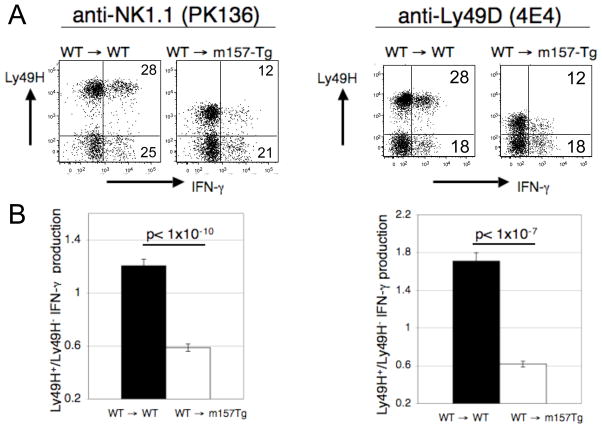FIGURE 2. Mature donor WT Ly49H+ NK cells become tolerant upon transfer into m157-Tg mice.
(A) Representative dot plots demonstrating IFN-γ production by freshly isolated splenocytes stimulated with plate bound anti-NK1.1 mAb (PK136) or anti- Ly49D mAb (4E4). The numbers represent the percentage of Ly49H+ or Ly49H− NK cells producing IFN-γ. The dot plots were gated on donor NK cells (NK1.1+, CD3−, CFSE+ cells). Donor cells were assessed 7 days post transfer. (B) The ratio of the percentage of IFN-γ producing Ly49H+ NK cells to the percentage of IFN-γ producing Ly49H− NK cells from WT→ WT (n=8) or WT→ m157-Tg (n=18) mice following stimulation with plate bound anti-NK1.1 mAb. (C) The ratio of the percentage of IFN-γ producing Ly49H+ NK cells to the percentage of IFN-γ producing Ly49H− NK cells from WT→ WT (n=5) or WT→ m157-Tg (n=8) mice following stimulation with plate bound anti-Ly49D. Donor cells in (A), (B) and (C) were assessed 7 days post transfer. The results are presented as the mean ± SEM.

